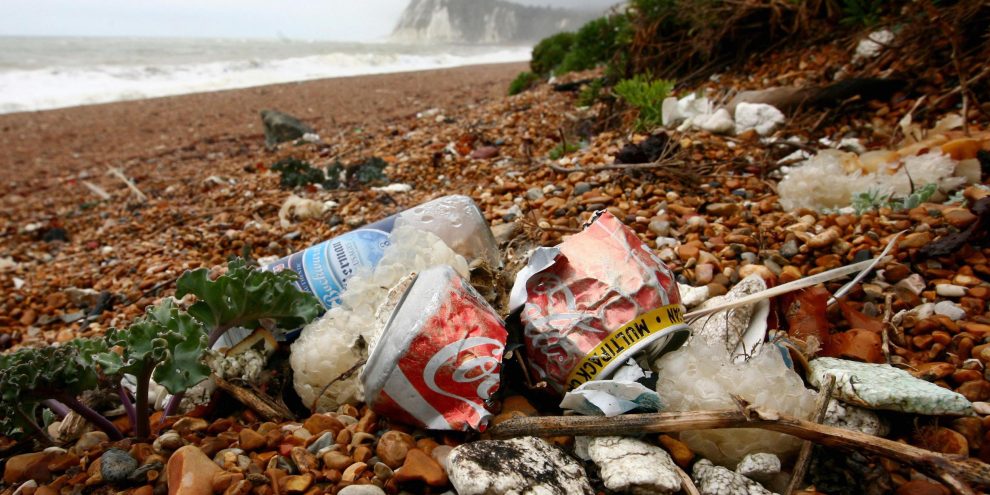
For those who love outdoor activities like hiking, camping, backpacking, there is one strict rule we live by. One sacred credo that, if believed by all, can help keep our beloved wilderness looking the way nature intended it. It’s a simple ideology known as:
LEAVE NO TRACE.
View this post on Instagram
Pretty easy to grasp, it basically means leave the trail, campsite, forest the same or better than you found it. Unfortunately, sometimes this means having to pick up after others.
It’s not quite as grandiose and fashionable a concept as, say, “Save the Whales”, but “Leave No Trace” is a lot more achievable and a heck of a lot more straightforward. “Leave No Trace” is beautiful in its brevity and combines the prescriptive with the directive, all right there in three words (or fifteen characters for those joining us from twitter). It’s a small, simple solution to a much larger problem. The earth is dying. In October 2018 the CBC reported that according to a 2018 report by the World Wildlife Fund 60% of world's wildlife population has been wiped out since 1970. Some quick back-of-the-envelope math shows that in the last four decades, we have lost nearly two-thirds of our wildlife population, which is just crazy to say out loud.
I consider myself an outdoor enthusiast. For years I’ve been an avid backpacker, adventurer, camper, hiker, etc. I’m no Stroud or Thoreau but I do enjoy spending extended amounts of time in the woods. I use that time to reflect, think about things – or not think, smell the smells, breathe the air. I get lost in it, become a part of it.
Unfortunately, even when I think I am removed from the human population, I am often reminded of our contribution to the local ecosystem. It’s not always obvious out there, but if you look closely enough, one of the more loathsome by-products of human civilization will almost always manifest itself. Sometimes it’s just a sparkle in the sunlight, but it’s there, breaking the fourth wall of the forest:
Trash.
View this post on Instagram
Yes, trash. Trash where trash has no right to be; trash that didn’t just drift a few feet from the over-filled trashcan; no, this particular trash has travelled hundreds of kilometres in the hands and backpacks of our short-sighted, entitled, “outdoorsy” brethren. Those who feel that earth is here exclusively to serve them, those who complain when the weather doesn’t quite jive with their plans, those who drove miles to leaf-peep in a place untouched by pollution – only to moon-land their Snickers wrapper where no Snickers wrapper had gone before. Nothing says Canada like Tim Hortons – you can even find their empty cups throughout our Provincial and National Park Systems.
I’m an environmentalist. Not quite the drop-everything-and-devote-my-life-to-the-cause type, but I’m growing closer and closer. Now, being an “environmentalist” is not a new, hip, thing by any stretch. What is new, however, is the use of hashtaggery in social media. That hashtag, or “pound key” as some of us elder millennials call it, is a tiny-yet-powerful little symbol that unites a community of people around the globe. Whether it be: “#travelblogger”, “#1dfan”, or “#vegan”, the hashtag can be easily searched to find a like-minded group of people. It’s pretty amazing. One popular travel blogger I follow, Jackson Groves, who has over 300,000 followers recently started to post pictures of himself after finishing a hike with a bag full of trash he collected and slapped the hashtag “#adventurebag” on the post.
Within hours of his first post, other Instagrammers took to posting their own collection of garbage, tagging Groves using #adventurebag and in turn, he would add their pictures to his story. It’s a win-win. Pick up a couple wrappers or empty cans, and get world-wide acknowledgement and instant karma. If you can imagine the things people do when we think no one is looking, consider the positive impact people can make given the promise of instant recognition.
View this post on Instagram
I hopped on the wagon. It was an easy decision. For years, I’ve been hiking and using my personal backpack as a trash bag, which, yes, led to a cleaner trail but also a ruined pack. Now, instead of happening upon some garbage, I throw a Glad bag in my pack before I head out, fully intent on doing my part. I know, it shouldn’t be anyone’s responsibility to pick up other people’s refuse and I wish it were as easy as just asking people not to litter but it is not. People suck. We are goblins. This way, we can enjoy being in nature, and we can enjoy actively working on improving the health of the ecosystem in a small, but incrementally positive way.
View this post on Instagram
For now, I remain steadfast in my belief that the good outnumber the bad sevenfold, and if all those good folks pack out their own bags and help others to “Leave No Trace” – we might end up saving not only the whales but the rest of our remaining wildlife after all.
Meet Jackson Groves
View this post on Instagram











